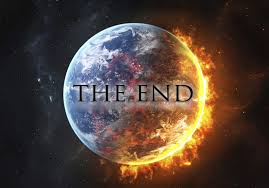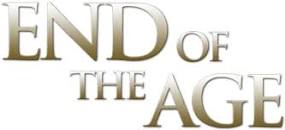Jesus said, “Truly I say to you, this generation will not pass away until all these things take place” (Matthew 24:34).

After describing His return to this earth, which it will be “just as the lightning comes from the east and flashes even to the west”, Jesus said, “this generation will not pass away until all these things take place” (Matt 24:27, 34). This statement has caused much uncertainty, for it seems as if Jesus said that He would return in that same generation. Some argue that “this generation”, refers to the generation that will see the signs of His coming. The purpose of this article is to analyze how the gospels use the word “generation” in support of the main article on Matthew 24 (The Little Apocalypse).
OVERVIEW

In Matthew 1:17, it is said that there were fourteen generations from Abraham to David, fourteen generations from David to Babylon and another fourteen generations from Babylon to the Messiah. Similarly, Mary said that “His mercy is upon generation after generation” and that “from this time on all generations will count me blessed” (Luke 1:46-49). This is also how we also use the word “generation” today.
But Jesus also used the phrase “this generation” to say things that may be applicable to all generations, for instance:
That when “He comes in the glory of His Father”, He will be ashamed of everybody in “this adulterous and sinful generation” that is ashamed of Him (Mark 8:38);
That “this generation … is like children sitting in the market places, who call out to the other children” (Matt 11:16);
That the last state of “this evil generation” will become worse than the first (Matt 12:43-45); and
That this is an “unbelieving and perverted generation” (Matt 17:17);
These four statements might be applicable to all generations or to His contemporary generation specifically, but in the following examples “this generation” can only refer to His contemporary generation. He said:

That no sign will be given to “this generation” but the sign of Jonah;
That the Queen of the South and the men of Nineveh will stand up with “this generation” at the judgment and condemn it (Luke 11:29-32; Mark 8:11-12);
That He will send prophets to “this generation”, whom they will kill and crucify, so that “all these things will come upon this generation” (Matthew 23:34-36 – It is generally agreed that this refers to the destruction of Jerusalem in AD 70.);
That the Son of Man must first be rejected by “this generation” (Luke 17:24-25);
The context in Matthew 24 must be studied in more detail, but, on the basis of the usage in the gospels, “this generation” most probably refers to Christ’s contemporary generation.
TEXTS QUOTED IN MORE DETAIL
Jesus said:
Matthew 24:34 “Truly I say to you, this generation will not pass away until all these things take place. 35 “Heaven and earth will pass away, but My words will not pass away.” (Also Mark 13:28-32; Luke 21:29-33)
A few verses before this, He spoke about His return to this earth:
27 “For just as the lightning comes from the east and flashes even to the west, so will the coming of the Son of Man be.”
These words have caused much uncertainty for Christians, for it seems to say that Jesus would return in that same generation. The purpose of this article is to analyze how the gospels use the word “generation”.
In the following examples it refers to a specific generation:
Matthew 1:17 So all the generations from Abraham to David are fourteen generations; from David to the deportation to Babylon, fourteen generations; and from the deportation to Babylon to the Messiah, fourteen generations.
Luke 1:46 And Mary said: “My soul exalts the Lord … 48 … For behold, from this time on all generations will count me blessed. 49 For the Mighty One has done great things for me … 50 and His mercy is upon generation after generation toward those who fear him.
In the following example it may refer to all generations, although it could also refer to His contemporary generation:
Mark 8:38 “For whoever is ashamed of Me and My words in this adulterous and sinful generation, the Son of Man will also be ashamed of him when He comes in the glory of His Father with the holy angels.” This may be compared to Matthew 10:32-33, where Jesus said, “Therefore everyone who confesses Me before men, I will also confess him before My Father who is in heaven. But whoever denies Me before men, I will also deny him before My Father who is in heaven”.
Matthew 11:16 “To what shall I compare this generation? It is like children sitting in the market places, who call out to the other children … “ (Also Luke 7:31-32)
Matthew 12:43 “When the unclean spirit goes out of a man, it passes through waterless places seeking rest, and does not find it. 44 Then it says, ‘I will return to my house from which I came’; and when it comes, it finds it unoccupied, swept, and put in order. 45 “Then it goes and takes along with it seven other spirits more wicked than itself, and they go in and live there; and the last state of that man becomes worse than the first. That is the way it will also be with this evil generation.”
Matthew 17:14 “A man came up to Jesus, falling on his knees before Him and saying, 15 Lord, have mercy on my son, for he is … very ill … 16 I brought him to Your disciples, and they could not cure him.” 17 And Jesus answered and said, “You unbelieving and perverted generation, how long shall I be with you? How long shall I put up with you? Bring him here to Me.” (also in Mark 9:17; Luke 9:38-42)
In the following example it can only refer to His contemporary generation:
Luke 11:29 “As the crowds were increasing, He began to say, “This generation is a wicked generation; it seeks for a sign, and yet no sign will be given to it but the sign of Jonah. 30 For just as Jonah became a sign to the Ninevites, so will the Son of Man be to this generation. 31 The Queen of the South will rise up with the men of this generation at the judgment and condemn them, because she came from the ends of the earth to hear the wisdom of Solomon; and behold, something greater than Solomon is here. 32 The men of Nineveh will stand up with this generation at the judgment and condemn it, because they repented at the preaching of Jonah; and behold, something greater than Jonah is here.” (See also Matt 12:39 & Matt 16:4)
Mark 8:11 “The Pharisees came out and began to argue with Him, seeking from Him a sign from heaven, to test Him. 12 Sighing deeply in His spirit, He said, “Why does this generation seek for a sign? Truly I say to you, no sign will be given to this generation.”
Matthew 23:34 “Therefore, behold, I am sending you prophets and wise men and scribes; some of them you will kill and crucify, and some of them you will scourge in your synagogues, and persecute from city to city, 35 so that upon you may fall the guilt of all the righteous blood shed on earth, from the blood of righteous Abel to the blood of Zechariah, the son of Berechiah, whom you murdered between the temple and the altar. 36 “Truly I say to you, all these things will come upon this generation.” (The same is recorded in Luke 11:45–51. The general agreement is that this refers to the destruction of Jerusalem in AD 70.)
Luke 17:24 “For just like the lightning, when it flashes out of one part of the sky, shines to the other part of the sky, so will the Son of Man be in His day. 25 But first He must suffer many things and be rejected by this generation.”
Articles in this series
-
-
- When and how will Jesus return?
- Christ’s Return in the book of Revelation
- What did Jesus mean by “the End of the Age“?
- Little Apocalypse – Jesus’ description of the End
- Matthew 24, Mark 13, and Luke 21 side-by-side
- “This generation will not pass away until …” (Matt 24:34)
- “You will not finish … until the Son of Man comes” (Matt 10:23).
- What does “the Kingdom of God” mean?
- “Some standing here shall not taste death until …“ (Matt 16:28).
- Jesus said and His disciples believed that He will return soon.
- Did He return “soon” by His Resurrection?
- Did He return “soon” by the destruction of Jerusalem in AD 70?
- Why did Jesus not return soon?
- List of articles with brief descriptions
-



 The phrase “the end of the age” is found once only in the Old Testament, namely in the last verse of Daniel, where a supernatural being tells Daniel:
The phrase “the end of the age” is found once only in the Old Testament, namely in the last verse of Daniel, where a supernatural being tells Daniel:
 He then warned them to flee to the mountains when they see Jerusalem surrounded by armies because that will be a time of extreme distress; if God did not shorten that time, all people in Jerusalem would have been killed. This happened in A.D. 70.
He then warned them to flee to the mountains when they see Jerusalem surrounded by armies because that will be a time of extreme distress; if God did not shorten that time, all people in Jerusalem would have been killed. This happened in A.D. 70.